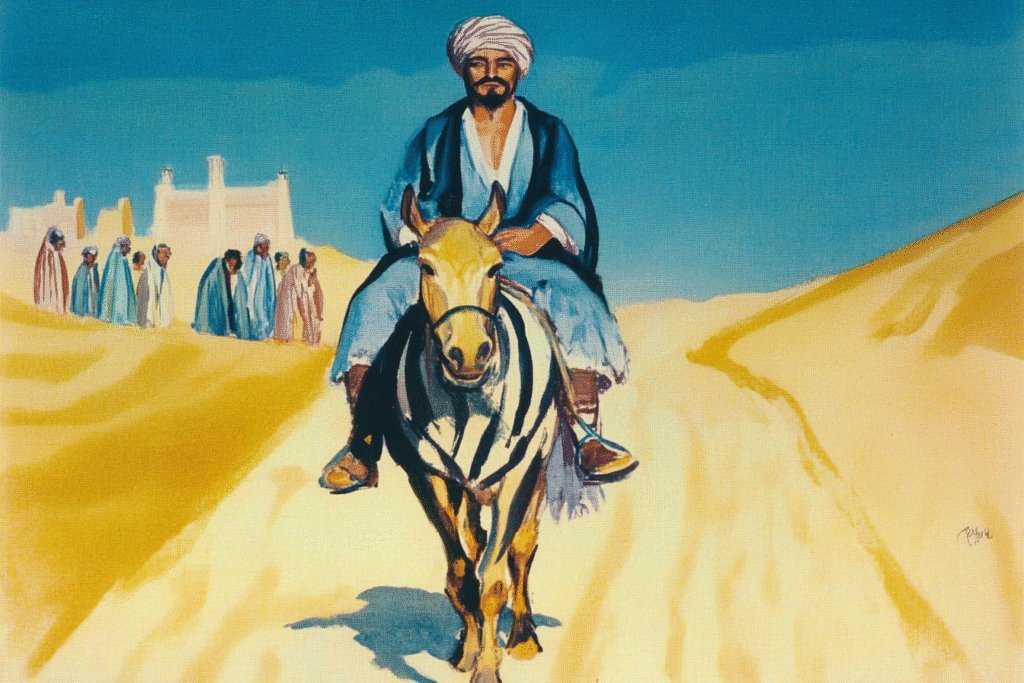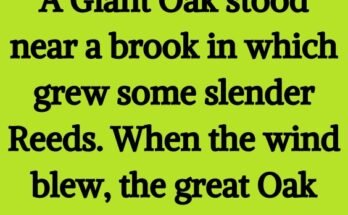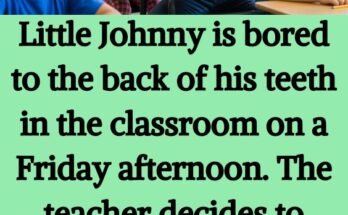
One day, a group of wise men—philosophers, scholars, and a guy with really thick glasses—set out across the land in search of answers to the greatest mysteries of their age. These were not small questions like “Where did I put my socks?” but the BIG ones: “What is the meaning of life?”, “What is true wisdom?”, and “Why do flatbreads always land butter-side down?”
After weeks of travel, many cups of bitter tea, and a questionable camel rental, they arrived in a small district where they heard a man named Nasreddin Hodja lived. “He is said to be wise, witty, and possibly a little off his rocker,” whispered one of the men.
“We must speak to him,” said the one with the biggest beard, which automatically made him the leader.
So, they went to the town square and found Nasreddin, sitting backwards on his donkey, eating grapes one at a time, and arguing with a chicken.
“Are you Nasreddin Hodja?” the wisest-looking wise man asked.
“No, I’m the donkey,” Nasreddin replied without turning. Then he turned. “Of course I am! Who else argues with poultry in public?”
The scholars gathered around him. “We have come from far away to ask you something of great importance.”
Nasreddin nodded and fed a grape to the chicken. “Fire away.”
The leader of the wise men cleared his throat. “What is the secret to true wisdom?”
Nasreddin squinted at them, scratched his beard, and said, “Come back tomorrow. I must consult… the Source.”
Excited, the wise men bowed and retreated to the local inn. Rumors flew through the village. “He’s consulting an ancient book,” one said. “No, it’s the spirits,” said another. “I heard he talks to a talking goat that lives behind the mosque,” said someone who may have been his cousin.
The next morning, the wise men returned, standing in a perfect line like slightly dusty chess pieces.
Nasreddin greeted them with a warm smile and a plate of slightly burned cookies. “I have your answer,” he said, holding up a small, wrinkled potato.
The wise men looked confused.
“The secret to wisdom,” Nasreddin said, raising the potato higher, “is to always remember… that even a potato can have more use than a philosopher when it comes to dinner.”
The scholars blinked. One took notes. Another tried to clap but wasn’t sure if it was appropriate.
“What does that mean?” asked the youngest of the group, who had clearly missed lunch.
“It means,” said Nasreddin, “you can ponder all day about the nature of existence, but when you’re hungry, it’s the potato that saves you—not the question.”
The oldest wise man narrowed his eyes. “But surely wisdom must be more than that!”
Nasreddin nodded seriously. “You’re right. Wisdom is also knowing not to leave a donkey in charge of directions.”
Behind them, his donkey was walking backwards into a fruit stand.
The scholars, after a long debate, decided that Nasreddin was either the wisest man they had ever met… or possibly just hungry. Either way, they wrote down his words in a thick book, titled it The Potato Principle, and debated it in universities for centuries.
Moral of the story: Sometimes wisdom is found not in lofty thoughts, but in humble places—like a potato, or a man arguing with a chicken.


